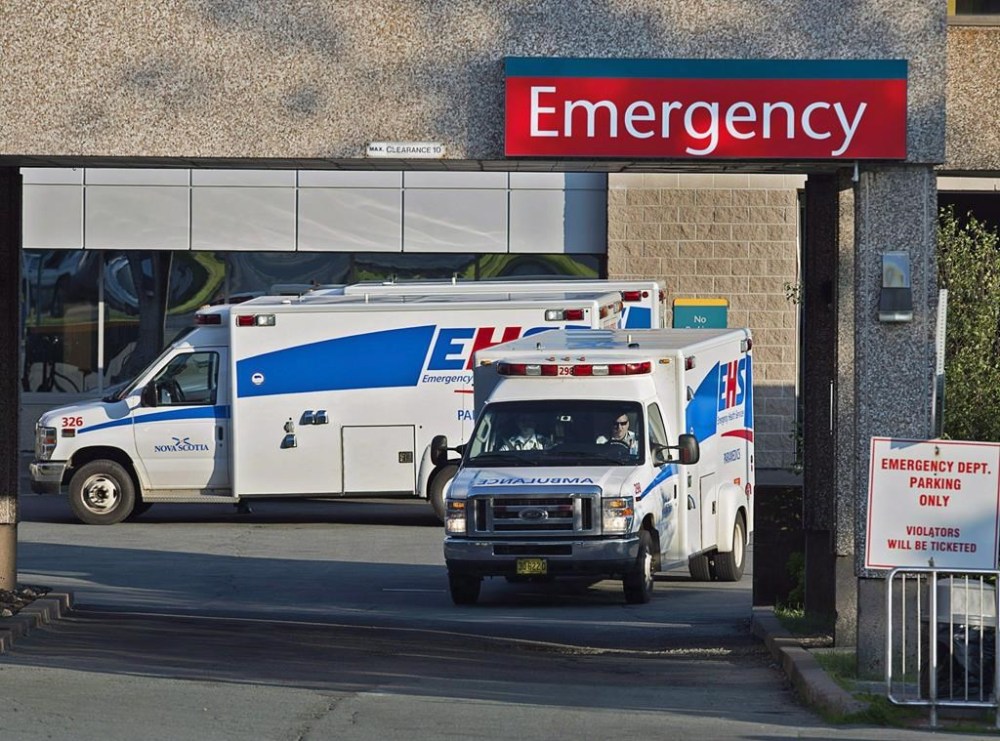Emergency departments are in a state of crisis, Halifax ER chief says
Advertisement
Read this article for free:
or
Already have an account? Log in here »
To continue reading, please subscribe:
Monthly Digital Subscription
$0 for the first 4 weeks*
- Enjoy unlimited reading on winnipegfreepress.com
- Read the E-Edition, our digital replica newspaper
- Access News Break, our award-winning app
- Play interactive puzzles
*No charge for 4 weeks then price increases to the regular rate of $19.00 plus GST every four weeks. Offer available to new and qualified returning subscribers only. Cancel any time.
Monthly Digital Subscription
$4.75/week*
- Enjoy unlimited reading on winnipegfreepress.com
- Read the E-Edition, our digital replica newspaper
- Access News Break, our award-winning app
- Play interactive puzzles
*Billed as $19 plus GST every four weeks. Cancel any time.
To continue reading, please subscribe:
Add Free Press access to your Brandon Sun subscription for only an additional
$1 for the first 4 weeks*
*Your next subscription payment will increase by $1.00 and you will be charged $16.99 plus GST for four weeks. After four weeks, your payment will increase to $23.99 plus GST every four weeks.
Read unlimited articles for free today:
or
Already have an account? Log in here »
Hey there, time traveller!
This article was published 13/01/2023 (1058 days ago), so information in it may no longer be current.
HALIFAX – The head of emergency medicine for Halifax and the surrounding area says ERs are under the most extreme pressure that he’s seen in his 23-year career, and he says it’s taking a toll on patients and health-care workers.
Emergency medicine is in a state of “crisis” amid a shortage of nurses, physicians and hospital beds, and with a rise in patients with complex needs, Dr. Kirk Magee, chief of the central zone’s network of emergency departments, said in an interview Thursday.
“We all went into emergency medicine because we love to do it and we love a challenge — but we used to have the resources to meet that challenge,” he said.

“Now (emergency department staff) are extremely worried they’re going to be put in a position where they’re not able to manage the expectations or even the needs of patients and their families.”
Magee, reached on the phone following an overnight shift at Halifax’s QEII Health Sciences Centre emergency department, said that often he and his peers must tend to patients in hallways and closets. Wait times can be “extraordinarily” long, he said, adding that patient care is not as good as it could be.
“This is not the care that we wish to provide; it’s the best we can do,” Magee said. “But we know that in a well-resourced system we would be able to do much better, and that’s really tough.”
He said the pressure ER staff are under has resulted in stress and long-term exhaustion that have driven many to reduce their working hours or leave the profession. “I’ve never seen the morale among physicians and nurses and other health-care professionals so low.”
Magee said that in order to make meaningful change and improve the situation in ERs, the province must address a number of different problems. The government, he said, should increase access to primary and walk-in care; add more hospital beds; hire more nurses and physicians; and increase the availability of community-health and home-care resources.
“This is a complex problem and there’s no one thing that’s going to make this better,” he said.
Data released Wednesday shows that deaths in Nova Scotia emergency departments were up 10 per cent in 2022 from the previous year. The data, obtained by the Nova Scotia NDP through a freedom of information request, shows that 558 people died in emergency departments across the province in 2022, up from 505 in 2021.
The figures, which cover Nova Scotia’s four health zones between 2017 through 2022, show that last year’s death toll was the highest during the six years under study.
On Dec. 31, 37-year-old Allison Holthoff died after a seven-hour wait at the Cumberland Regional Health Centre emergency department, in Amherst, N.S. In response to Holthoff’s death, Elizabeth Smith-McCrossin, the Independent member for Cumberland North, shared on social media a letter she wrote to Premier Tim Houston calling for urgent changes to the Cumberland hospital ER, which is under renovation.
Her proposed plan includes establishing a temporary walk-in clinic adjacent to the ER, placing a health-care worker in the hospital waiting room to monitor patients, and upping the number of nurses working in the emergency department.
This report by The Canadian Press was first published Jan. 13, 2023.
—
This story was produced with the financial assistance of the Meta and Canadian Press News Fellowship.

